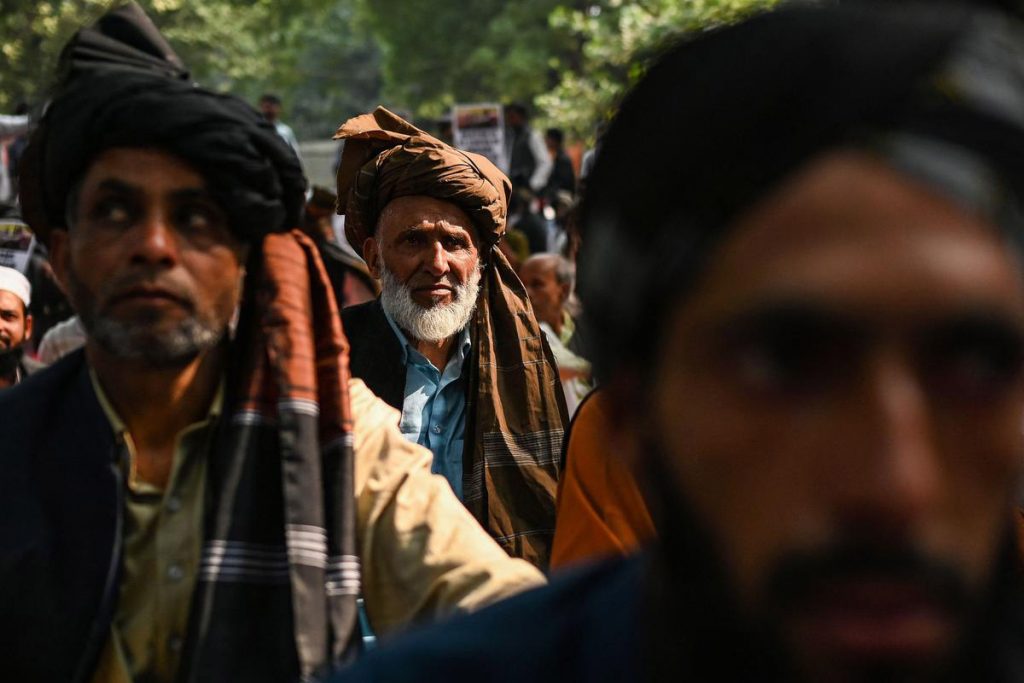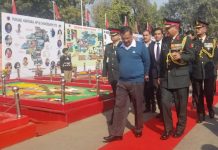
Gujjars and Bakerwals, who have historically been designated as scheduled tribes, are vehemently opposed to the move. They fear that the inclusion of Paharis will lead to a dilution of their own benefits and representation, and push them into perpetual poverty, writes Riaz Wani
In a move that has sparked some controversy, the union government recently introduced the Constitution (Jammu and Kashmir) Scheduled Tribes Order (Amendment) Bill, 2023, proposing to include the Paharis, among other groups, in the Scheduled Tribe list. While this change is seen by some as a step towards social justice, it has drawn opposition from the Gujjar community, who fear adverse consequences.
Gujjars and Bakerwals, who have historically been designated as Scheduled Tribes, are vehemently opposed to the inclusion of Paharis. They argue that Paharis are not a tribal group and mostly belong to upper castes. They fear that the inclusion of Paharis will lead to a dilution of their own benefits and representation, potentially pushing them into perpetual poverty.
Anwar Choudhary, leading the Gujjar-Bakerwal Joint Action Committee, said that the underlying reason for the BJP’s attempt to give reservation to Paharis is to diminish the protective measures and advantages of their ST status.
“The BJP has strategized that granting Scheduled Tribe (ST) status to the Pahari community would lead to their alignment with the BJP’s established voter support, thereby contributing to the party’s success throughout the Rajouri-Poonch region,” he said, adding that unlike the Pahari community, the Gujjar-Bakerwal community consists entirely of Muslims.
Advantage BJP?
When Union Home Minister Amit Shah visited Jammu and Kashmir in October 2022, he addressed two rallies – one at Rajouri in Jammu and another at Baramulla in Kashmir. In both, Shah reached out to Gujjar, Bakerwal and Pahari communities. It was when he first announced the implementation of the Scheduled Tribe (ST) status for economically disadvantaged communities. The Home Minister justified it saying that minorities and Dalits living in the Union Territory would not have gotten reservation rights if there was no abrogation of Articles 370 and 35A in 2019. And in Baramulla, he reiterated the reservation promise to the three communities.
The ST quota in J&K carries 7 percent reservations in government jobs and educational institutions.
The decision to give reservations to the communities is seen as a clever pre-poll gambit by the BJP. Largely Muslims, Gujjars, Bakerwals, and Paharis comprise 40 percent of the population in border districts. And if the gambit succeeds as looks likely, it could persuade a large section of these tribal communities to vote for the BJP, further ensuring its victory in the Jammu division and also enabling the party to make some inroads in Kashmir Valley.
Eight assembly seats in the Rajouri and Poonch districts of the Jammu division are decidedly influenced by the Paharis, the Gujjars, and the Bakerwals. For any political party hoping to form the government in J&K, these seats are crucial. If the BJP wins these seats, it can hope to sweep the Jammu division with 43 seats, fortifying its chances to form a government with support from a Kashmir-based party.
There is a catch here though: Gujjars and the Bakerwals already have ST status, enjoying it since 1991, so they are worried about the dilution of their Scheduled Tribe (ST) quota, with Paharis also partaking in the pie. And as a result, the BJP may not end up benefiting to the extent it expected.
BJP’s reaction
The BJP has defended the move saying it gives justice to the long-ignored Paharis. The party’s state president Ravinder Raina said the lifestyle of Paharis is similar to the Gujjar-Bakerwal.
“In 1991, Paharis were removed from the Scheduled Tribe (ST) list under suspicious circumstances.” Raina said. “Paharis have similar culture, same eating habits, live in similar geographical terrian, do seasonal migration, rear cattle and have dhoks in higher reaches.”
As the debate continues, it remains to be seen how the Indian government will navigate the concerns and interests of both the Gujjar, Bakerwal and Pahari communities, and what impact this move will have on the intricate social fabric of Jammu and Kashmir.












